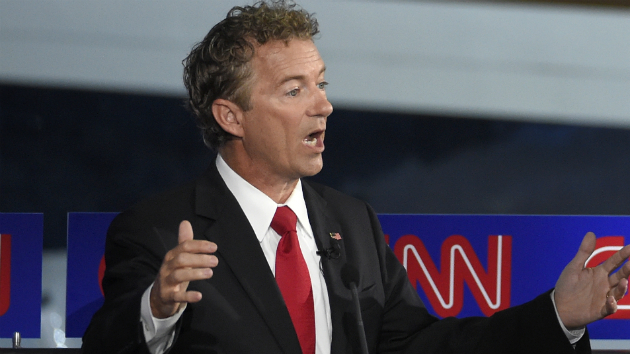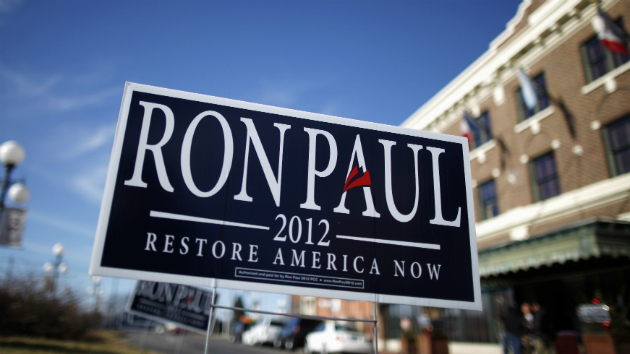An Iowa judge dealt a setback to prosecutors who have accused several Paul family political operatives of breaking campaign finance laws during Ron Paul’s 2012 presidential campaign. The judge ruled on Friday that all the charges filed against John Tate, a longtime Paul family operative who worked for both Ron and Rand Paul and for groups tied to the family’s political causes, should be dismissed. During the 2012 election, Tate was in charge of America’s Liberty PAC, a pro-Rand Paul super-PAC endorsed by the Kentucky senator. Several of the charges against Jesse Benton, who is married to Ron Paul’s granddaughter and also involved with America’s Liberty PAC, were also dropped. But Benton and a third Paul lieutenant, Dimitri Kesari, are still both scheduled to go to trial next week.
This case focuses on these operatives’ roles running the 2012 Ron Paul campaign and an apparent plan to pay an Iowa state senator to switch his endorsement from Michele Bachmann to Ron Paul. The state senator, Kent Sorenson, initially denied there was a scheme to pay him to back Ron Paul, but eventually he admitted that he took money from the Paul campaign through a third party (to cover the campaign’s tracks). He pleaded guilty last year to federal campaign finance charges and is awaiting sentencing. On Friday, federal judge John Jarvey, dismissed all the charges against Tate and all but one of the charges against Benton, saying that in presenting charges to the grand jury, prosecutors improperly included accusations that Benton and Tate lied about their involvement in the case during meetings with investigators and prosecutors.
The judge’s decision was apparently based on complaints by Benton and Tate’s respective lawyers that the government convinced a grand jury to indict them by using statements the men made when they were under the impression that prosecutors wouldn’t use these remarks against them. According to court documents, last summer, before a grand jury was convened, the two men met, separately, with investigators and prosecutors in what is known as “proffer sessions”—meetings in which the subject of the interview is usually given some immunity and a promise the government won’t use what they tell investigators against them. The one instance in which statements made during a proffer session can be used to prosecute the interviewee is when the government prosecutes the person directly for making false statements to federal investigators. The charges against Tate and Benton that were dismissed today were related to conspiracy and campaign finance violations. The judge ruled that it was improper for prosecutors to bring up what Benton and Tate said in the proffer sessions when accusing them of those crimes.
Benton is still charged with making false statements to federal investigators and Kesari still faces six charges relating to the case, including conspiracy and campaign finance charges. Prosecutors also claim he tried to convince Sorenson to not cooperate with investigators.
Neither Benton nor Tate’s attorney responded to requests for comment, but Peter Carr, a spokesman for the Department of Justice, said new charges may still be filed against Tate and Benton.
“The government is free to proceed to trial—and informed the court today that it will proceed to trial—on the remaining counts pertaining to Benton and Kesari,” Carr said. “The decision regarding the dismissed counts will be made at a later date post trial.”














